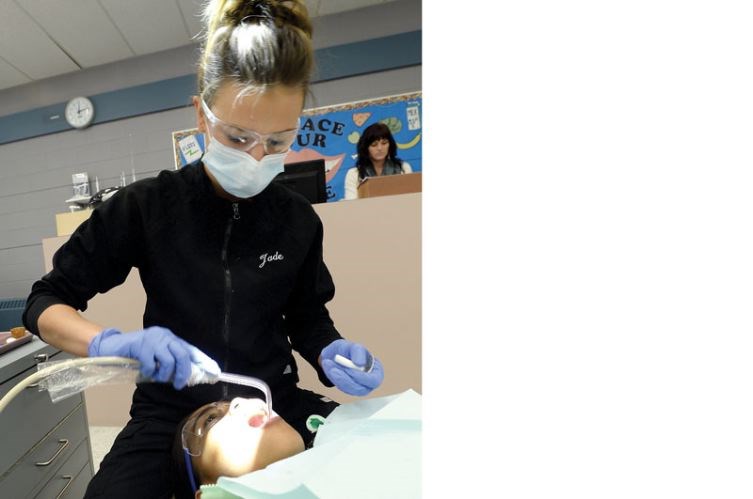One of the founders of the College of New Caledonia's dental program is questioning the proposal to suspend intake for students hoping to become dental assistants or hygienists.
"(CNC president Henry Reiser) won't give us a definite answer on when they would plan to bring the program back," said Carole Whitmer, who has been an instructor at the college since 1987. "I don't know if any of us would still be around.
"They also haven't consulted us at all in the process. We actually have some ideas that could help make the program more cost effective."
It can't be officially axed until the Board of Governors approves the college's recommended budget at its meeting March 27 to address the $2.8-million deficit. Last year, the college faced at $1.2-million deficit.
Whitmer plans to be there and will make a presentation to try and save the program. An online petition with the same goal has more than 1,000 signatures.
CNC's faculty association has said it expects between 18 and 25 instructors will be laid off, while Reiser stressed he can't give definite numbers affected until the board approves the budget and processes set out in the faculty's contract have been followed.
Reiser said he recognized the suspension of the dental programs is controversial.
"It is simply a case of budgetary shortfalls and a high cost of delivery," he said. "We're going to try to make this as short as possible because we value the program, it's just that you have to understand, all of the programs we have left are viable and healthy programs."
Reiser said the cost of running both the programs is roughly $1-million.
"It's not a question about how much we lose, it's a question of mitigating a $2.8-million deficit," he said. "It's all part of our ongoing deficit reduction process."
The board will also hear recommendations to shutter an aboriginal early childhood education program - one that has had historically low numbers of enrolments, Reiser said - as well as close the daycare.
With the dental program enrolment is not the issue, both agreed.
Whitmer said there are 19 students completing their second year in the hygienist program and a further 13 who are in first year. They would still complete their second year, but with access to reduced staff, she said. The one-year dental assistant program consistently fills its capacity of 24 students.
According to the college's February application report, the dental assistant program had 14 students qualified for the 2015 intake and a further nine with incomplete applications. With dental hygiene, it had 10 listed as qualified for the 15 spots.
Reiser said the college will work with accepted students to find alternate placement.
Should the Board of Governors approve the recommended budget at the March 27 meeting, it would also likely mean layoffs for three CUPE workers - one full time and two part-time - who act as operational staff for the program.
Reiser said the college has been fighting $1- and $2-million deficits since as far back as 2007.
"This comes from a number of reasons. It comes from increased cost of delivery, increased cost of gas, all of those costs are increasing and the (provincial funding) envelope is what it is."
CNC's plan for its dental program is to assess the course, redesign it, and offer a substantially different version at a higher tuition rate. Whitmer questioned what she sees the college considering when discussing the new delivery model.
"The dean has mentioned, well, do we really need a clinic? There isn't a dentist program or dental hygiene program that does not operate a clinic," she said, also noting the clinic offers low cost dental services to the community and that students will have to leave the north to access their education.
The closest programs are in Kelowna and Vancouver, she said, and she's not sure how much more revenue the college can expect. She said it the hygienist program is already near comparable to the $20,000 over two years. The college's tuition and materials is close to $18,000 for dental hygienist students.
"We're not sure what their plan is," said Whitmer, who also noted a revamped program will have to achieve accreditation before it is offered, a long and expensive process.
Reiser said that shouldn't be a problem.
The board will vote on the budget on March 27 at 1 p.m., during a meeting at CNC that is open to the public.



